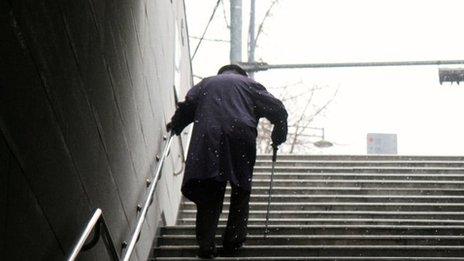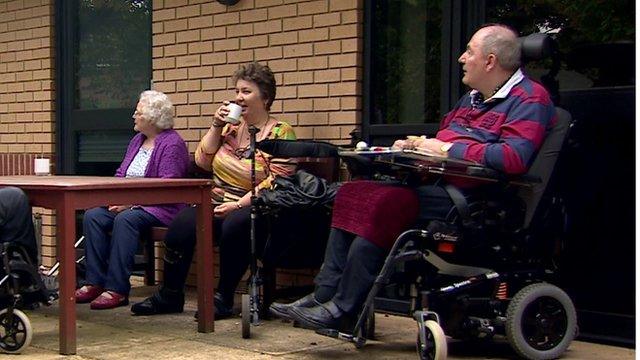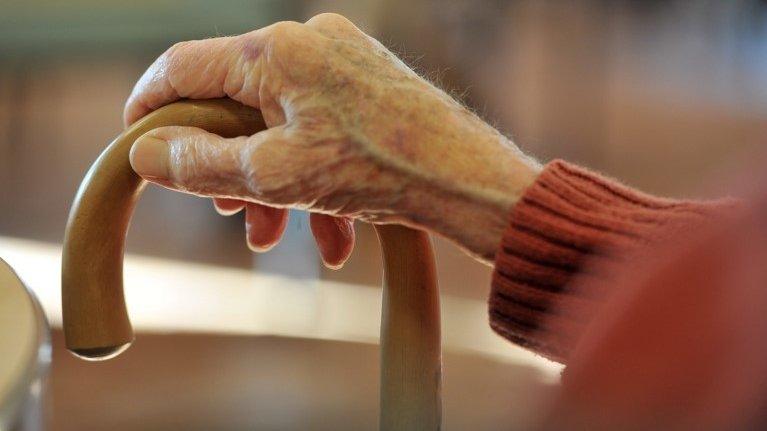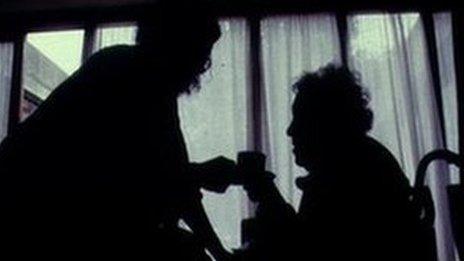Council-run care 'unsustainable', survey finds
- Published

The council-run care system for the elderly and adults with disabilities is becoming "unsustainable", social services chiefs are warning.
A survey of 144 social care departments in England found savings of more than a quarter had had to be made since 2010.
Funding cuts and rising demands are key problems, says the Association of Directors of Adult Social Services.
They predicted the situation would get worse, despite attempts to channel extra NHS money into the system.
The survey found the total budget put aside for means-tested social care by councils in 2014-15 stands at £13.68bn.
That represents a drop in cash terms of £266m from last year and a real terms cut of 12% since 2010 once inflation is taken into account.
At the same time the survey, which covered 95% of the total social care departments in England, showed demand for support has risen by 14% since 2010, meaning councils have had to make savings of 26%.
This has been done through a combination of reducing the numbers getting support - down by nearly a fifth in the past two years - as well as reducing the amount spent on each individual.
Greater integration
ADASS president David Pearson said: "Our survey shows beyond doubt that we have reached the point where we are unable to absorb the pressures.
"As resources reduce and need increases, directors are increasingly concerned about the impact on countless vulnerable people who will fail to receive, or not be able to afford, the social care services they need and deserve."
Mr Pearson praised the way councils had prioritised social care - the proportion of the entire local government budget spent on services has increased from 30% to 35% in the past four years.
But he said the situation was only likely to get worse in the future despite an extra £3.8bn being put in the system from next year under the Department of Health's Better Care Fund. This fund is largely sourced from the NHS budget and is aimed at encouraging greater integration between health and social care.
Knock-on effect
Feedback from directors of social care departments supported this prediction with nearly half saying fewer people would get help in the coming years and a similar number warning the problems will have a knock-on effect for the NHS - one of theories for the rise in demand at A&E units has been the lack of support in the community.
Local Government Association chairman Sir Merrick Cockrell said he agreed it was getting to crunch time.
He warned councils could no longer keep protecting social care without "harming popular services like buses, libraries and leisure centres".
"This highlights why we urgently need a bigger Better Care Fund. Next year will be make or break for local services," he added.
A Department of Health spokeswoman said: "Councils are ultimately responsible for deciding how to spend their budgets but we agree that we all need to work differently." She added the Better Care Fund would help.
But Age UK's Caroline Abrahams said: "We should be doing so much better as a society."
- Published5 March 2014
- Published2 July 2014

- Published15 October 2013
- Published8 October 2013

- Published7 October 2013

- Published13 February 2013
- Published5 October 2013
